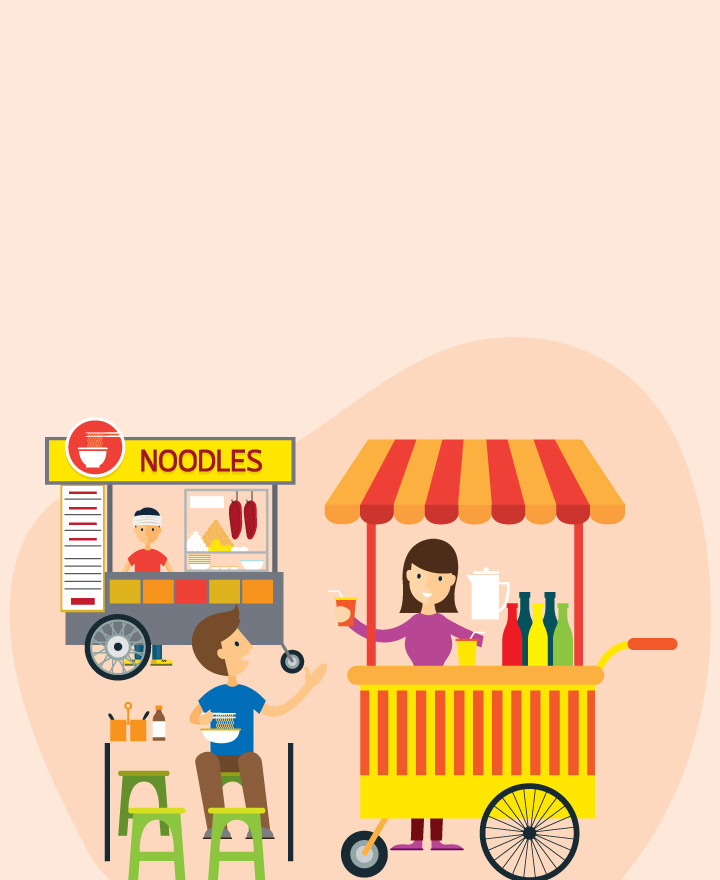

Thai Food Etiquettes: A Handy Guide For Your Gastronomic Adventures
Food is a large part of any culture and the case is no different in Thailand. In Asia, food and fellow diners are respected equally. When you sit down to have a meal, you are expected to follow certain etiquette. Thankfully, a lot of Thai culture is similar to Indian culture and so, you have an advantage when you travel to Thailand. If you are invited to someone’s house for a meal, or you choose to dine at a restaurant, or even grab a bite from a food stall by the street, it would be good for you to follow the proper dining protocols. Take a look at this article to know what exactly they are and why you should follow them.
1. Wai gesture
The Thai Wai gesture is identical to the Indian Namaskar. You fold your hands, bend your neck and slightly bow down when you meet and greet someone. Wai is commonly practised by the Thai people in almost every interaction. If you are entering someone’s house or are being ushered into a restaurant, don't forget to return the Wai that is given to you.
2. Remove footwear
It is customary for the people of Thailand to remove their footwear before sitting down for a meal. Some restaurants, especially those that have floor seating arrangements, would expect you to take your shoes off before you eat and the same holds true for home meals as well.
3. Wait for the elders to be seated
This is another Thai food etiquette that you must follow, especially when you are invited to someone’s home for a meal. Wait for the head of the family, and all the elders to be seated at the table and then take your place. It is considered to be very rude if you sit before anyone else.
4. Don't use your hands
This is where Thai food etiquette majorly differs from Indian food etiquette. In Thai culture, eating food with your hands is not a good practice. Always use a spoon and a fork. Also, chopsticks are not meant for Thai food and are not a part of Thai culture either, so do not ask for chopsticks when you go for a Thai meal.
5. Eat slowly
The people of Thailand put a lot of effort and love into their cooking. This is why they expect you to savour the flavours and experience the cuisine in every bite. Eat slowly and show respect, rather than just gulping down the food instantly.
6. Compliment the chef
Whether you are having a bowl of papaya salad from a street vendor, or you are having a five-course meal at a large restaurant, remember to compliment the chef. This act is greatly appreciated. Also, thank the waiters and smile while you speak to them and don't forget to tip them before leaving.
7. Share the food
It is considered to be rude in Thai culture to finish your entire meal without sharing. You need to offer some of the food from your plate to the others seated at the table. They may politely refuse, but you should not forget to ask. This is another big part of Thai food etiquette.
8. Serve others
Just like we do in India, in Thailand too, people help and serve each other while eating a meal together. Offer to serve the people seated next to you as that shows love, respect and courtesy. If you are eating in a buffet, wait in line. Do not push and shove to get ahead of the others, as that is considered to be very impolite.
9. Wait for everyone to finish
And finally, wait for everyone to finish their meals before you leave the table. Even if you finish your meal earlier, wait till the last person to finish. Sit at the table and engage in the ongoing conversation. If you are at someone’s house, offer to carry the plates to the sink. Simply finishing your own meal and walking off goes against Thai food etiquette.
Conclusion
As you may have noticed, a lot of the traditions and etiquette are similar to those we have in India. So follow these easy Thai food etiquettes and make a good impression among the locals in Thailand. It is always nice to be courteous and respectful and when you show kindness, you get it back as well. And getting treated with courtesy and kindness in a foreign land is always desirable, so go for it!
Disclaimer: The above information is for illustrative purposes only. For more details, please refer to the policy wordings and prospectus before concluding the sales.
Published on September 11, 2023














 Health Insurance
Health Insurance  Travel Insurance
Travel Insurance  Car Insurance
Car Insurance  Cyber Insurance
Cyber Insurance  Critical Illness Insurance
Critical Illness Insurance
 Pet Insurance
Pet Insurance
 Bike/Two Wheeler Insurance
Bike/Two Wheeler Insurance  Home Insurance
Home Insurance  Third Party Vehicle Ins.
Third Party Vehicle Ins.  Tractor Insurance
Tractor Insurance  Goods Carrying Vehicle Ins.
Goods Carrying Vehicle Ins.  Passenger Carrying Vehicle Ins.
Passenger Carrying Vehicle Ins.  Compulsory Personal Accident Insurance
Compulsory Personal Accident Insurance  Travel Insurance
Travel Insurance  Rural
Rural